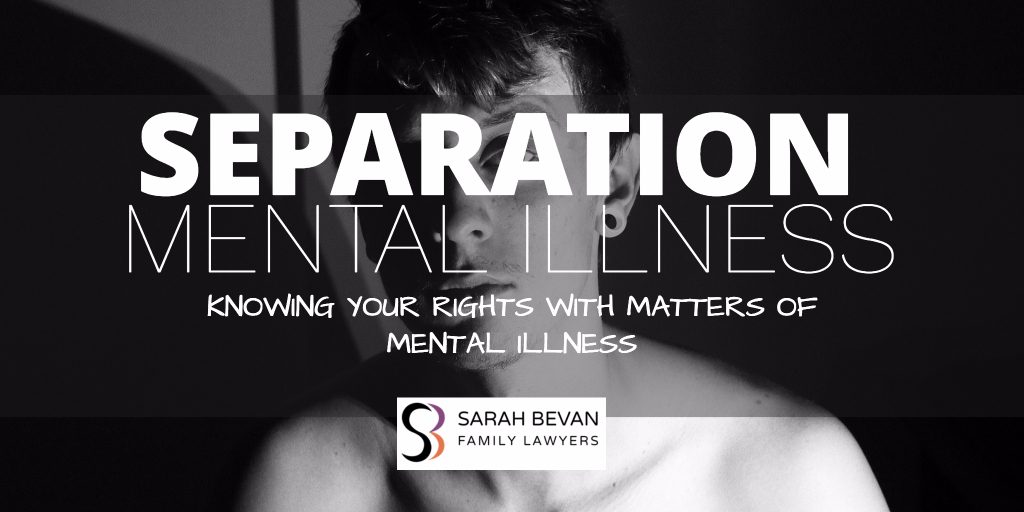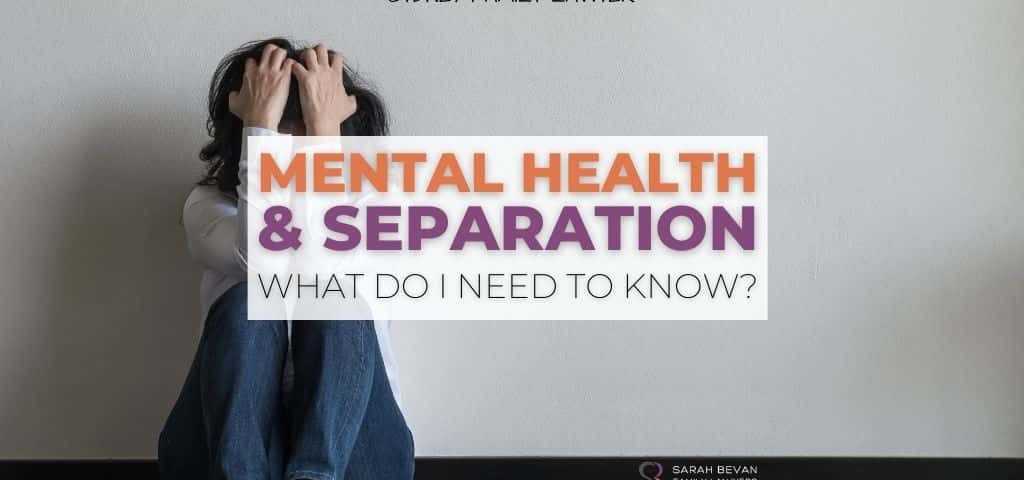- Family Lawyers Sydney
- 1300 007 235
- mail@sbfamilylawyers.com.au
Separation and Divorce and Mental Health Issues
Separation and Divorce Due To Mental Health “ Expert assistance in difficult times ”
Separation and Divorce Due To Mental Health – Approximately one in five adult Australians will experience a mental illness in any year.
The most common of these are depression, anxiety and substance abuse disorder. It is also possible and not uncommon for these to occur at the same time.
Commonly anxiety may lead to depression and a person may abuse alcohol or other drugs in order to self medicate. This may also lead to a vicious cycle of one mental illness causing another which then causes the illness to become worse and lead to another illness.
Nearly half of the Australian population will experience a mental illness during their lifetime.
The presence of a mental illness in a person can put great pressure on their relationships, particularly with a partner. This pressure may result in either the person with the mental illness ending the relationship, or the other partner ending the relationship due to no longer being happy in the relationship.
Separation is not only a relationship status but also a legally recognized status of two people with particular legal consequences.
In family law separation is defined as the bringing to an end of a marriage or de facto relationship. It is possible for two people to have separated yet remain in the same residence.
How do I prove we have separated?
To prove in court that a separation has occurred for the purpose of a divorce, the court will necessarily consider a number of factors. These may include whether the parties slept in the same or separate rooms following the date the separation is alleged to have occurred; whether financial affairs were separated; whether any documents were signed or lodged which provide that the person doing so was single or in a relationship; the level of intimacy after the relevant date; whether the separation was known to have occurred by family or friends.
Where a married couple has separated and is now contemplating divorce, this process may be processed in the Federal Circuit Court (formerly the Federal Magistrates Court).
Do I have to say the reason we are divorcing?
Divorce in Australia does not require any fault on the part of any party. This means it is not necessary to prove that the person you are married to has done something wrong which has caused the breakdown of the relationship and marriage.

In relation to a divorce application only, a mental health condition is not strictly relevant. If the person you are married to has a mental illness, this does not need to be shown to the court in order for a divorce to proceed.
For a divorce application to proceed, it must be proved to the court that the relationship has broken down irretrievably. This is shown by a period of separation of 12 months immediately before filing the divorce application. This period must be a complete period where at no point in time was there reconciliation of the relationship.
It must also be shown that the other party to the divorce has been served with a copy of the divorce application at least 28 days prior to the divorce or hearing. If the other party to the divorce lives overseas, it must be shown that they have been served with a copy of the application at least 42 days before the date of the divorce hearing.
The best interests of the children
Courts are very concerned where there are children of the marriage. It is the protection of the child(ren)’s best interests that is the court’s primary concern. However, a person has been diagnosed with a mental health condition does not automatically mean the court will decide they are not capable of being a responsible parent. It is possible however for a court to decide that a person’s mental illness affects their ability to care for their child(ren) and as a result determine the parenting arrangements in light of this.
Where there is joint property between two people who are separating or divorcing, this will be divided in the process of separation or divorce. If there is no previous agreement on how the property is to be divided either by way of a financial agreement or court consent orders, then the Courts have the power to decide how the joint property is to be divided.
Where one party to the separation or divorce has a mental illness, this may be relevant to the division of property for a variety of reasons, but the most common is whether their income earning ability is affected because of this.
Sarah Bevan Family Lawyers comprises a team of experienced specialist Australian Family Lawyers who provide an extensive range of high quality legal services within the area of family law including domestic and international family and divorce law.
For further information please contact our offices on (02) 9633 1088. We have offices conveniently located in Sydney, Surry Hills, Crows Nest & Parramatta or email us at mail@sbfamilylawyers.com.au.



